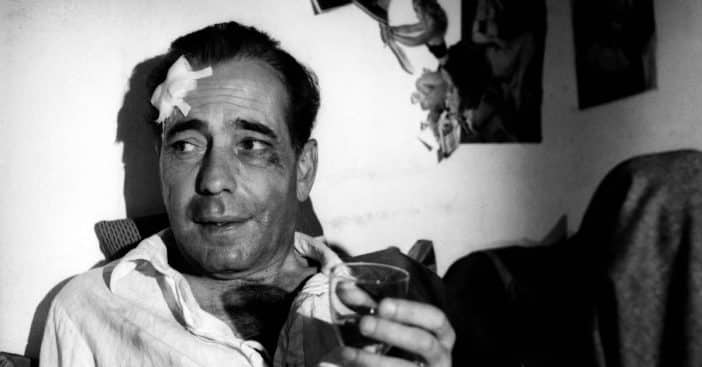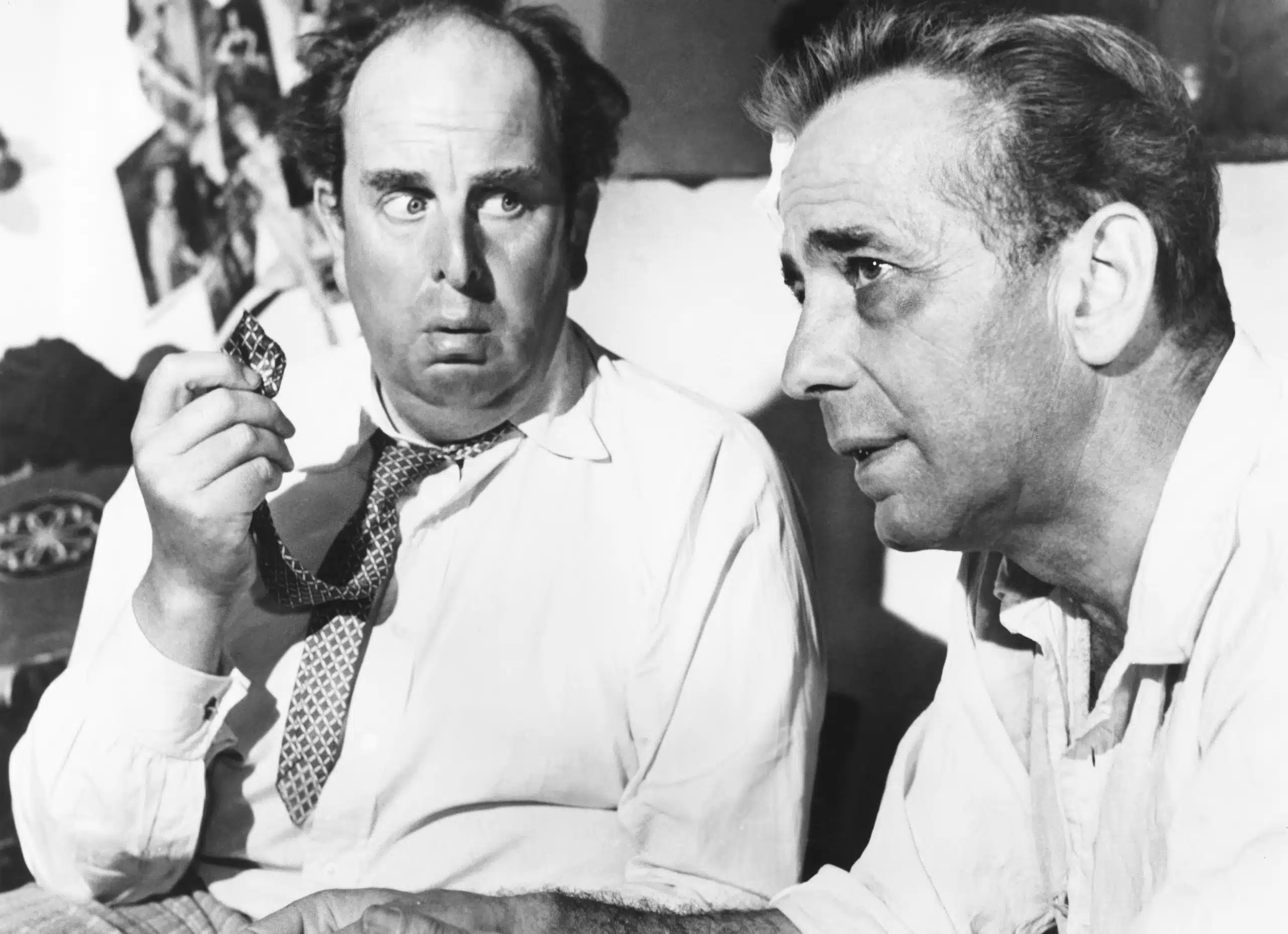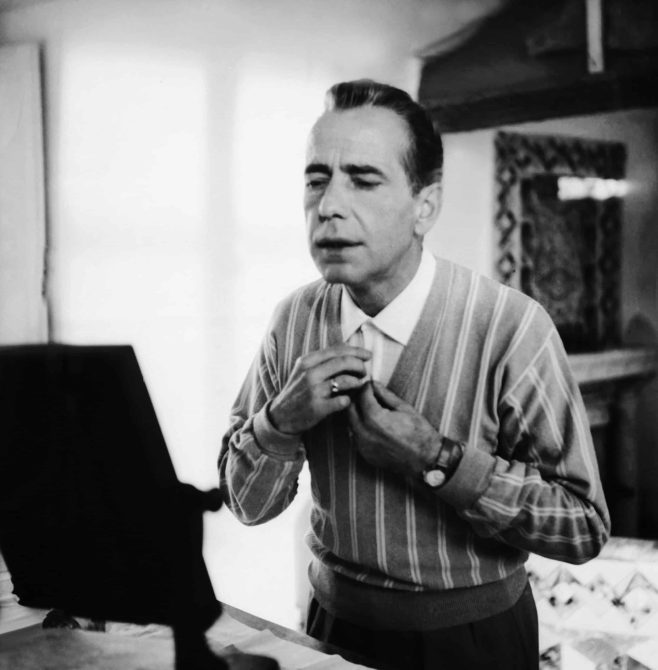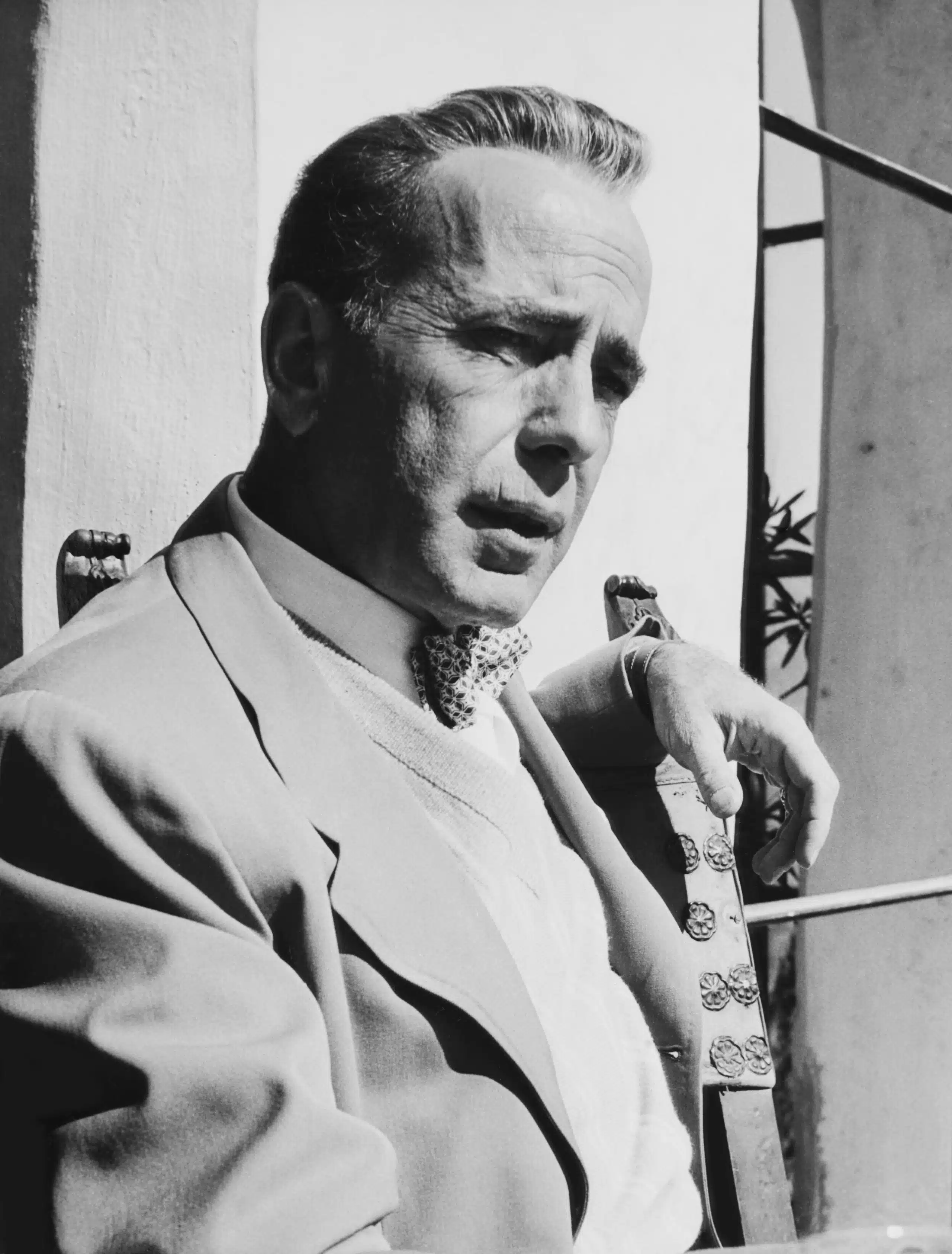
A lot happens behind the scenes of our favorite movies, and sometimes the actors get hurt. The ’50s classic Beat The Devil is one with a chaotic backstory and was not received well on release. However, this John Huston-directed film has gained a cult following over the years and was aptly described as “ten years ahead of its time.”
The original intent was for the film to be a thriller, but writer Truman Capote changed it into a parody during filming. The eventful production saw Capote finishing the script on set, wrestling matches among cast members, nights of pot and poker games that caused the budget to rise and, most interestingly, the accident that cost Humphrey Bogart some teeth.
Bogart suffered several injuries

Bogie, as Bogart was fondly called, challenged Capote to an arm-wrestling match only to lose three times in a row. Capote, who was said to be “half-drunk all day and dead drunk all night,” engaged in a wrestling match against Bogie and won again after slamming the Casablanca actor’s head on stones.
RELATED: Humphrey Bogart’s Signature Smoking Was Actually A Cinematic Technique
Bogart suffered a badly cut lip and needed makeup to continue shooting. “He put Bogie on his ass. He was a little bull,” Huston said. Huston also recalled how Bogie lost his front teeth after their chauffeur crashed through a stone wall and into a ditch while driving to a location. “When I realized he wasn’t seriously hurt, I couldn’t help laughing. Bogie glared at me. ‘John, you thun-of-a-bith! You dirty, no-good thun-of-a-bith!'” he said, mocking Bogart.

More mishaps on set
The injury affected Bogie’s speech, so comedian Peter Sellers did some of his lines. The star also cut his tongue, and a dentist came from California to bring a new dental bridge on set. Huston was not left out of the commotion either; he suffered a severed vein while showing off how in shape he was to Bogart. His back hurt so badly he had to be carried down the stairs and straight to a doctor.

Capote also had his share of hospital stays, sending six pages of script from his hospital bed — a show of commitment that delighted Huston. The film was eventually released in 1953, but performed poorly at the box office. Bogie admitted to The Guardian that he wished the movie never came out; sadly, he did not live to see its success in the ’60s, as he died of esophageal cancer in 1957.
